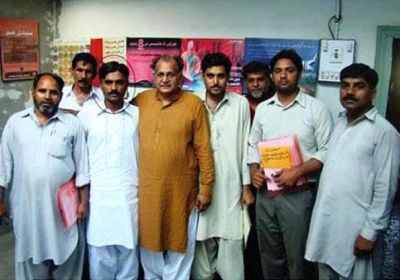
On July 6, while 32-year-old Mustansar Rindhawa was listening to a worker who had not been paid his wages by a textile boss, an unknown person with a Kalashnikov entered the front room and fired.
Mustansar tried to save his life by running to the next room, but 10 people were determined to finish him off.
I met Mustansar briefly on June 19 in Faisalabad, less than a month before his murder. He was one of 30 participants in a trade union training course at the Labour Qaumi Movement (LQM) offices.